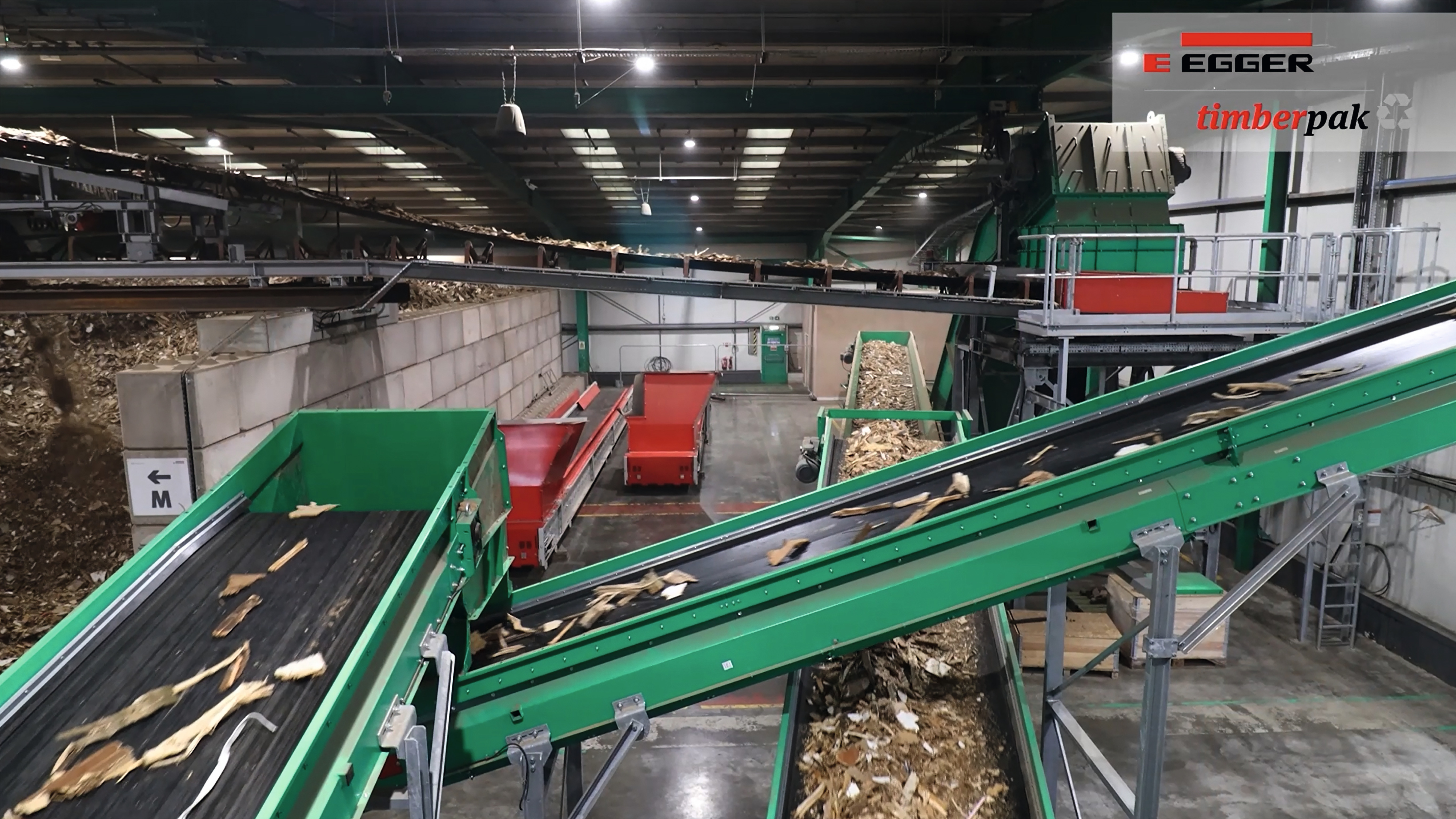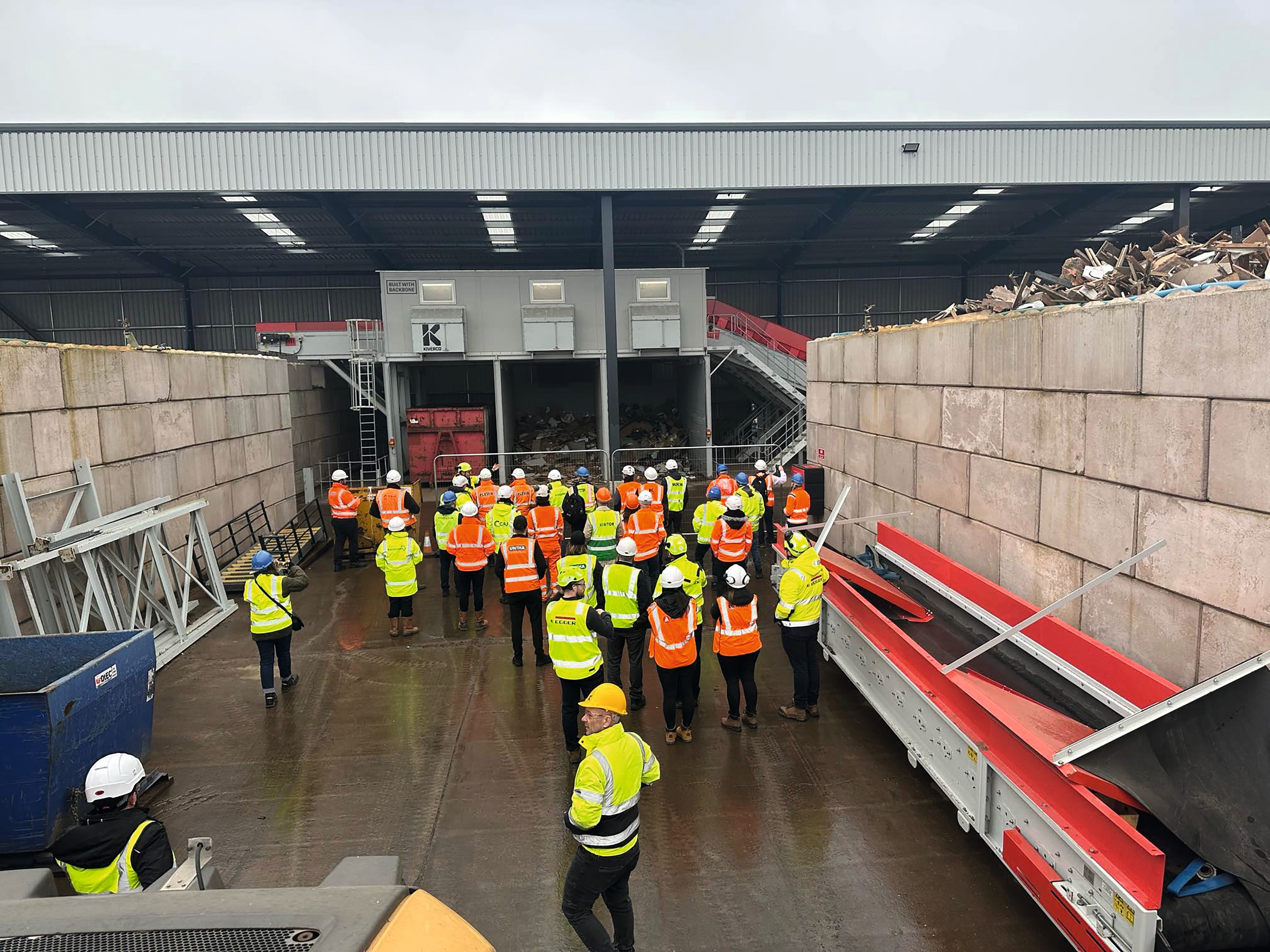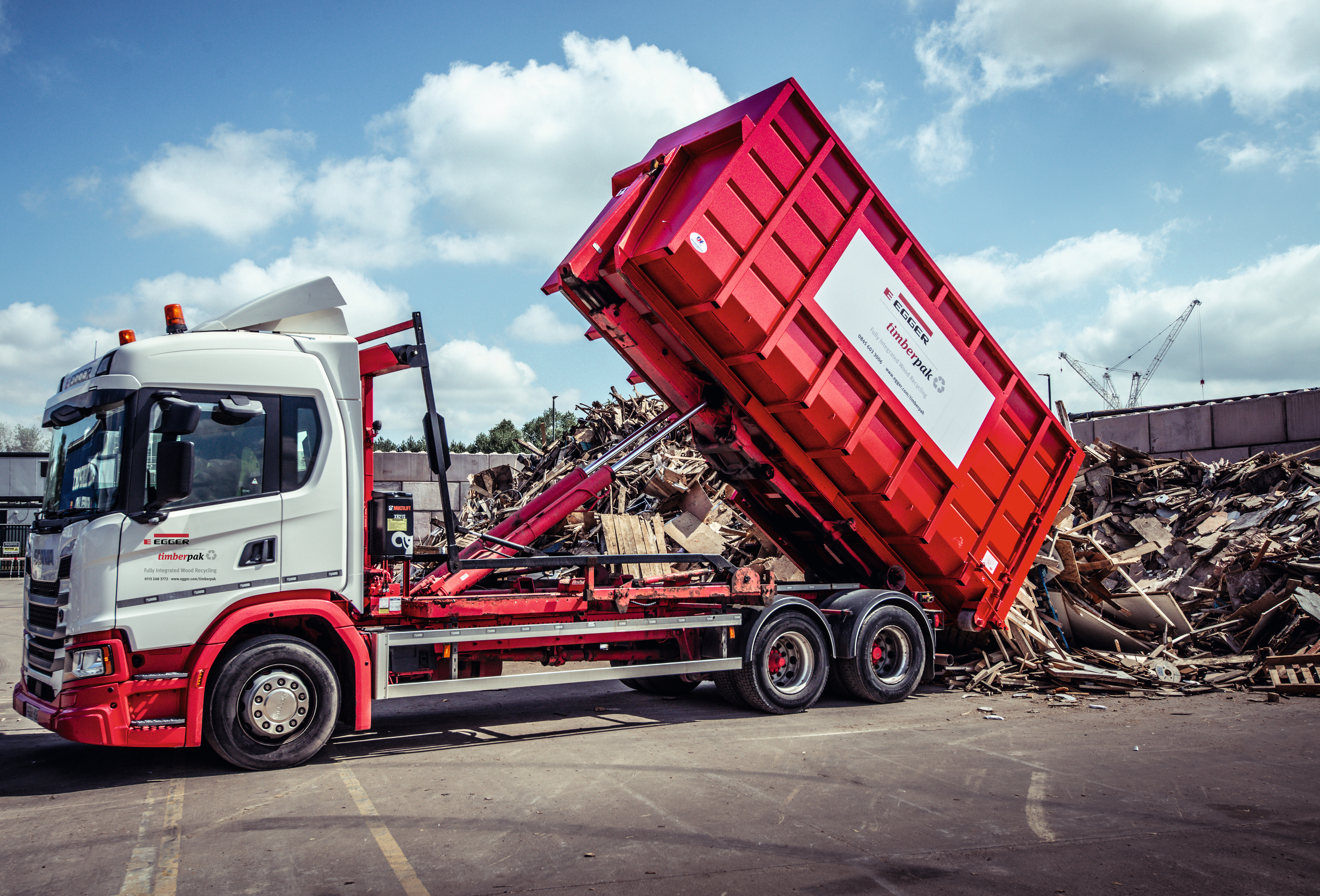Timberpak Leeds was asked by the Wood Recyclers’ Association to host a visit, in order to showcase what a modern wood recycling business can look like.
The Wood Recyclers’ Association (WRA) organised an educational field trip on 6th March to Timberpak Leeds for approximately 35 members, including wood recyclers, end users, and machinery and service suppliers. Facilitated by long-standing WRA board member Mark Hayton, Head of Wood Purchasing and Director of Timberpak, the tour took place at the newly renovated Leeds site, offering an inside look into modern wood recycling practices.
The field trip provided an interactive opportunity for visitors to witness the operational workflow of the wood recycling business. Visitors were shown the state-of-the-art facilities and innovative processes, gaining a deep understanding of the complexities involved in sustainable wood recycling.
The journey began with a tour through the pedestrian-free area of the site, allowing participants to explore the premises and learn about the company's robust safety protocols. The group was guided through a one-way system for access and egress. They observed the paperless ticketing system for efficient management of weigh tickets, and gained a firsthand view of the enormous legio blocks, crucial for both wood storage and fire safety measures within the facility.

Key highlights of the tour included a detailed explanation of the vehicular entrance, where Mark explained the careful material validation processes and the bore hole’s significant role in supplying water to manage dust suppression.
The tour also provided a firsthand experience of the new HAAS 2500e electric shredder and the cutting-edge screening system, showcasing the company’s commitment to environmentally friendly operations. Mark explained to the visitors the benefits of being powered by electricticity.: Firstly, the plant is much quieter with the electric powered machinery than it was with the older diesel-powered machinery, whilst also making use of the company’s 365kw roof top solar panels. Secondly, the electro magnet is four times more efficient at removing metal than a standard permanent magnet normally found on wood shredders.
Throughout the visit, Mark shared information about the site infrastructure, dust management technology, daily truck operations, and production management strategies.
The event concluded with refreshments, affording participants an opportunity to engage in further discussions and ask detailed questions.
Julia Turner, Executive Director of the WRA, said: “Our members were delighted to have the opportunity to look around Timberpak’s modern wood recycling facility and hear about the company’s dedication to safety and sustainability. A big thank you to Mark and everyone at Timberpak for organising such an interesting and educational day.”
Timberpak and the WRA's joint efforts in organising this insightful field trip underscore their continued commitment to promoting best practices in wood recycling and fostering meaningful connections within the industry.
About the Wood Recyclers Association: The WRA has more than 120 member companies representing over 90 per cent of the UK’s wood recyclers and reprocessors. It acts on behalf of its members to provide a voice for the sector at the highest levels, working closely with the Environment Agency, DEFRA, DESNZ and other trade associations and recycling bodies to influence and advice on issues affecting our industry, including legislation.
Its members include wood recyclers and reprocessors, panel board mills, renewable energy suppliers, technology manufacturers, consultancies and specialist insurance and health & safety companies.
The WRA was formed in 2001 by a small group of wood recyclers who wanted to raise standards in the industry and ensure its needs continued to be recognised and met by those in power. Today the association is led by a board of nine, eight of who are elected by the membership and give their time on a voluntary basis, plus the Executive Director.
The WRA holds three members’ meetings a year which include presentations on a range of subjects from potential new markets to environmental and regulatory issues. It also aims to host at least one site tour of a member company at least once a year.



